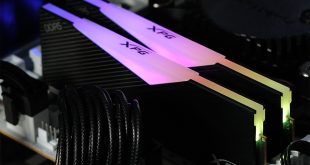Corsair supply a detailed installation guide with the cooler which illustrates the installation process. Unfortunately, the mechanism is a little more complicated that the one that Corsair use for their higher-end coolers.
First of all, the backplate must be configured to the type of socket on the motherboard. This involves pushing four small screw thread modules into the plastic backplate.
It can then be fixed to the back of the motherboard using the provided foam pads.
Then, the retention ring also needs to be attached This involves attaching two plastic pieces together in the correct position in each of the four corners of the ring.
This is a little fiddly and is much less simple than the magnetic bracket system used on the higher end coolers.
Once these have been fixed in place, the retention ring can be attached to the backplate using the four screws provided. These should only be loosely fastened so the CPU block can be maneuvered into place underneath later on.
Next, the radiator and fan must be attached to the case. Corsair recommend that it is mounted as an intake for the best performance, sucking air in from the outside of the case and pushing it through the radiator.
The radiator unit fits to a standard 120 mm fan vent using the provided screws, sandwiching the fan in between. You can install it as an exhaust (as pictured above) if you prefer.
The CPU block can then be secured down to the motherboard. Once it has been slid into place under the retention ring, it must be rotated slightly so that the teeth on the retention ring match up with the slots on the cooler. Then, the retention ring can be screwed down into place.
Finally, the fan must be attached to the CPU fan header on the motherboard and the pump must be attached either to an auxiliary fan header on the motherboard or attached directly to the power supply.
 KitGuru KitGuru.net – Tech News | Hardware News | Hardware Reviews | IOS | Mobile | Gaming | Graphics Cards
KitGuru KitGuru.net – Tech News | Hardware News | Hardware Reviews | IOS | Mobile | Gaming | Graphics Cards









Why would anyone buy a closed loop cooler be is Corsair or any other brand when they are inferior to a quality heatsink/fan combo in thermally efficiency, cost and noise? In addition closed loop as well as open loop liquid coolers do and have leaked causing expensive PC damage.
When you can buy a quality heatsink and fan for less and it performs better without any risk of water damage, it would be foolish to buy a closed loop cooler.